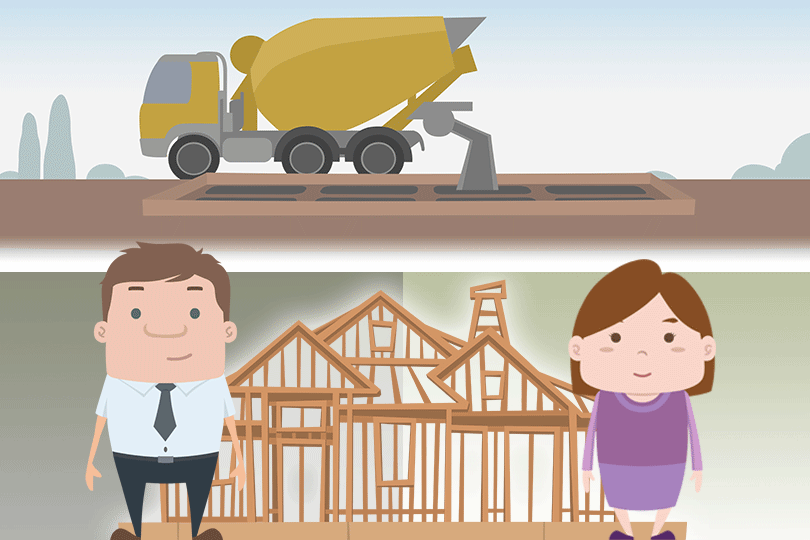ADUs and FHA Construction Loans

In 2023, interest rate increases thanks to the Fed’s inflation reduction strategy made any kind of financing more expensive, leading some to consider smaller properties or waiting until conditions improved.
In 2023, a housing trend towards accessory dwelling units or ADUs became “a thing” in the market. ADUs are living units the owner adds to an existing home. These include mother-in-law apartments, garages, studio spaces, and more.
Applying for a home loan to build an ADU is a similar process to a construction loan (single-close or not) in that permits, plans, and scope of work are all issues to consider when planning the loan.
ADU projects add value to the property and can go a long way toward relieving a homeowner of the need to buy an entirely new home.
But accessory dwelling units and the home loans that fund them do NOT typically fall into the One-Time Close construction loan category.
An ADU typically has different considerations than a construction loan. The size of the loan may be smaller depending on the scope of the work needed, and permitting issues may vary depending on the city and state, but in general, they may require a different process or type of permitting.
Your experience will vary.
You must find a lender willing to offer a One-Time Close loan to build an ADU. Chances are good that your participating lender may provide other options such as a renovation loan, home equity line of credit, cash out refinancing, etc.
Your lender may use One-Time Close mortgages specifically to build a new dwelling rather than add to an existing property.
Consider the definition of a single-close mortgage, which many lenders describe as a mortgage program that finances the construction, lot purchase, and permanent loan for a brand-new property with one closing date and one loan payment.
Note the language. The loan is for a “new home” rather than an addition. Borrowers who want to build on land with no existing property may do so with a One-Time Close loan. The same is true of land you buy in conjunction with the loan.
If existing structures on the property need to be torn down, you’ll need to discuss that option with the lender (where financing is concerned). But if you need to add to those existing structures, expect the lender to suggest a different option.
 FHA, VA, and USDA: One-Time Close Loans
FHA, VA, and USDA: One-Time Close Loans
Want More Information About One-Time Close Loans?
We have done extensive research on the FHA (Federal Housing Administration) and the VA (Department of Veterans Affairs) One-Time Close Construction loan programs. We have spoken directly to licensed lenders that originate these residential loan types in most states and each company has supplied us the guidelines for their products. We can connect you with mortgage loan officers who work for lenders that know the product well and have consistently provided quality service. If you are interested in being contacted by a licensed lender in your area, please send responses to the questions below. All information is treated confidentially.
FHA.com provides information and connects consumers to qualified One-Time Close lenders to raise awareness about this loan product and to help consumers receive higher quality service. We are not paid for endorsing or recommending the lenders or loan originators and do not otherwise benefit from doing so. Consumers should shop for mortgage services and compare their options before agreeing to proceed.
Please note that investor guidelines for the FHA and VA One-Time Close Construction Program only allows for single family dwellings (1 unit) – and NOT for multi-family units (no duplexes, triplexes or fourplexes). In addition, the following homes/building styles are not allowed under these programs, including but not limited to: Kit Homes, Barndominiums, Log Cabin Homes, Shipping Container Homes, Stilt Homes, Solar (only) or Wind Powered (only) Homes, Dome Homes, Bermed Earth Sheltered Homes, Tiny Homes, Accessory Dwelling Units, or A-Framed Homes.
Contact Us: Send Us Your Request – Spam Safe
Please send your email request to [email protected] which authorizes FHA.com to share your personal information with one mortgage lender licensed in your area to contact you.
1. Send your first and last name, e-mail address, and contact telephone number.
2. Tell us the city and state of the proposed property.
3. Tell us your and/or the Co-borrower’s credit profile: Excellent – (680+), Good - (640-679), Fair – (620-639) or Poor- (Below 620). 620 is the minimum qualifying credit score for this product.
4. Are you or your spouse (Co-borrower) eligible veterans? If either of you are eligible veterans, down payments as low as $0 may be available up to the maximum amount your debt-to-income ratio per VA will allow – there are no maximum loan amounts as per VA guidelines. Most lenders will go up to $1,500,000 and review higher loan amounts on a case-by-case basis. If not, the FHA down payment is 3.5% up to the maximum FHA lending limit for your county.

Do you know what's on your credit report?
Learn what your score means.






